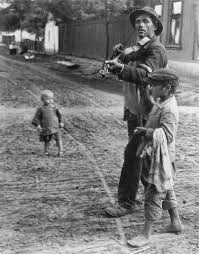Total Pageviews
Monday, September 30, 2013
Thursday, September 26, 2013
40 most powerful photos
- What made you pick the photo? ive picked these photos because to me they represent human emotions that alot of people dont use like love ,unity, and standing up for what you believe in
- Is there anything about the composition of the photo (this means how the photographer set the photo up in their view finder, NOT the content of the photo) that made your eyes gravitate to the photo. yes the lighting or the monk photo was an eye drawer.
- Why do you think this photo made the cut of the top 40 photos ever? because they show sides of people thst people rarly express
masters of black and white photography 2
1.first and last name? André Kertész
2.birthday/dethday july 2, 1894- September 28, 1985
3.Austria Hungary
4.buissness classes
5.stockbroker, photographer, editor
6.seven decades, hungary
2.birthday/dethday july 2, 1894- September 28, 1985
3.Austria Hungary
4.buissness classes
5.stockbroker, photographer, editor
6.seven decades, hungary
camera mode
6. What is the difference between the Auto Mode and the Program mode?
Auto The camera will completely control flash and exposure. while program mode you can usually control flash along with other settings
Auto The camera will completely control flash and exposure. while program mode you can usually control flash along with other settings
7. What is the Portrait mode used for? How does it work? To attempt to blur out the background, camera will try to use the fastest available lens setting (aperture).
the camera
1. Explain the “camera obscura” effect. How is it achieved? when your in a dark room and you make a tiny hole so an image of the out side will show up on the opposite side.
2. What invention during the 17th Century helped man get a step closer to creating the modern camera? sir issac newtons and Christian Huygens optical lens
3. What were the parts of the first modern camera invented by Niepce? a glass lens, a dark box, and film.
4.What do modern digital cameras have in common with Niepce’s camera? its still basicly the same method just with computer technology
5. What do digital cameras use to capture an image? a electronic sensor called a ccd
camera parts
Aperture- an opening in which light passes before reaching the film.
Shutter- blocks all light from exposing the film UNTIL you press the button.
Exposure- In order for an image to be captured on film, it must be exposed to light.
Depth of Field- The distance between the nearest and the furthest objects that give an image judged to be in focus in a camera.
F-stop- A camera setting corresponding to a particular f-number. Focal length- The distance between the center of a lens or curved mirror and its focus.
Shutter- blocks all light from exposing the film UNTIL you press the button.
Exposure- In order for an image to be captured on film, it must be exposed to light.
Depth of Field- The distance between the nearest and the furthest objects that give an image judged to be in focus in a camera.
F-stop- A camera setting corresponding to a particular f-number. Focal length- The distance between the center of a lens or curved mirror and its focus.
Friday, September 20, 2013
monster meal
My monster meal shall consist of cinnamon toast crunch followed by trix's then boo berry with a dash of lucky charms coco puffs pops
Friday, September 6, 2013
best and worst photos
file://localhost/Volumes/PhotoJ/1st%20Period/DeLeon,%20Nacona/IMG_6655.JPG
file://localhost/Volumes/PhotoJ/1st%20Period/DeLeon,%20Nacona/IMG_6660.JPG
Tuesday, September 3, 2013
Subscribe to:
Comments (Atom)









